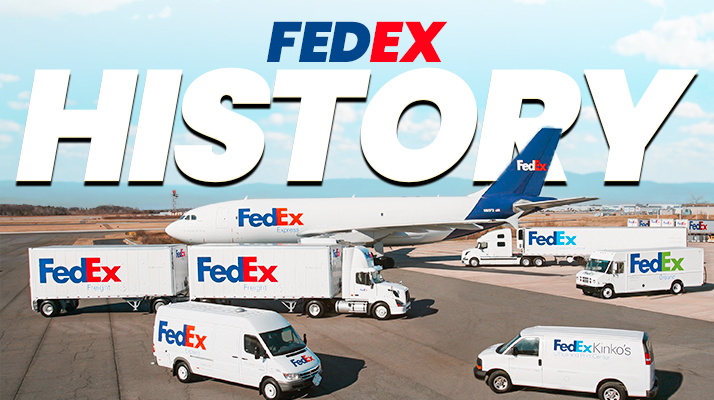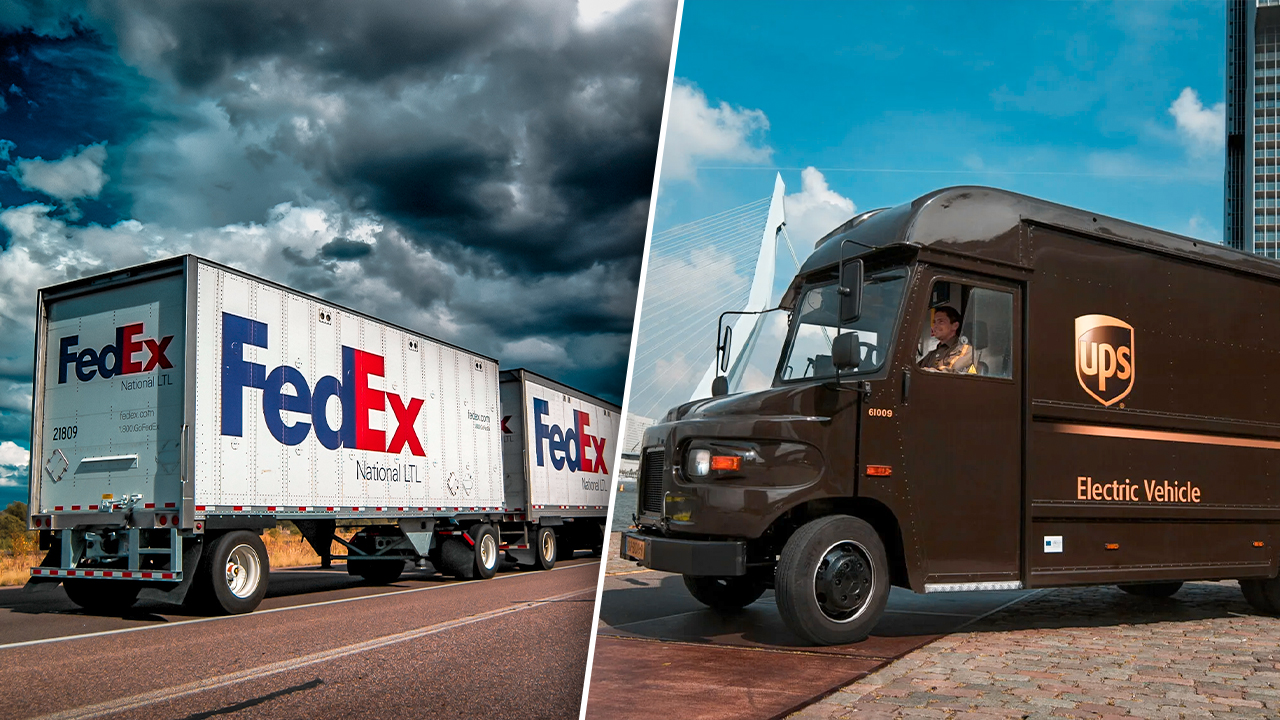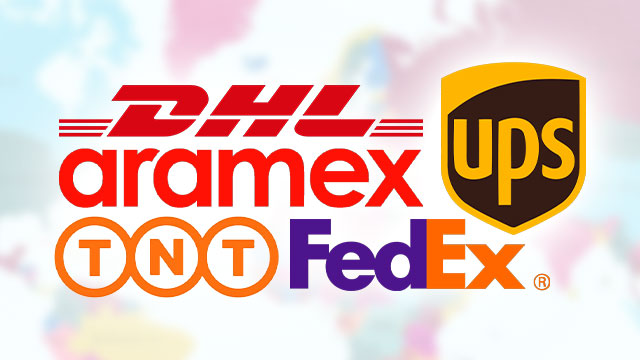The Impact of 5G on Package Tracking Precision
What Are the Potential Benefits of 5G-Enhanced Package Tracking?
- Increased Accuracy of Tracking Information
- Faster Delivery Times
- Improved Customer Satisfaction
How Will 5G Affect Package Tracking for Different Industries?
- E-commerce
- Logistics and Supply Chain
- Healthcare
- Retail
What Are the Concerns Surrounding 5G-Enhanced Package Tracking?
- Data Privacy and Security
- Potential for Job Displacement
- Infrastructure Challenges
How Can Companies Prepare for the Implementation of 5G in Package Tracking?
- Upgrading Tracking Systems and Equipment
- Training Employees on New Technology
- Developing Contingency Plans for Potential Issues
As 5G networks continue to roll out, they promise to revolutionize various industries, and package tracking is no exception, particularly in the logistics industry.
This article explores what 5G is, including its ultra-low latency and mmWave capabilities, and how its enhanced connectivity will significantly improve the precision and efficiency of package tracking systems.
From e-commerce to healthcare, we examine the current limitations and the exciting benefits that 5G brings, such as improved localization accuracy and enhanced visibility, along with considerations like data security and infrastructure challenges.
Discover how this technology is set to transform the way we track packages.
1. What Is 5G?
5G, the fifth generation of mobile telecommunications technology, is set to revolutionize connectivity with its remarkable capabilities, including ultra-low latency, high data transfer rates, and enhanced localization accuracy, which are crucial for applications in telecommunications and logistics tracking. Compared to its predecessor 4G, 5G utilizes advanced technologies such as mmWave and Sub-6GHz frequencies, paving the way for seamless communication across various tech applications, including the Internet of Things (IoT), autonomous vehicles, and emergency response systems, fundamentally reshaping telecommunications and the logistics industry.2. How Will 5G Affect Package Tracking?
The introduction of 5G technology is poised to dramatically enhance package tracking systems, enabling unparalleled real-time tracking and improved localization accuracy throughout the logistics industry, significantly impacting supply chain management. With the ability to support a multitude of IoT devices and smart sensors, 5G facilitates seamless data transfer between communication service providers and tracking systems, ensuring that packages are monitored and managed efficiently and effectively, which is vital for logistics operations.What Are the Current Limitations of Package Tracking?
Despite advancements in tracking systems, current package tracking methods often face significant limitations, primarily tied to the reliance on 4G technologies, which struggle with real-time data management and localization accuracy, thus hampering effective logistics operations. These constraints can lead to inefficient logistics operations, hampering the overall efficiency of the supply chain and limiting visibility into package status, further emphasizing the need for advanced positioning systems.In an age where speed is essential, package tracking systems run into hurdles that can frustrate consumers and businesses alike, especially in urban areas where accurate tracking is critical. 4G technology not only limits the bandwidth needed for seamless data transmission but also creates gaps in service that can slow delivery times. This issue is compounded by the fact that many logistics providers are still using outdated systems that are poorly equipped for modern demands, often relying on traditional wireless standards rather than embracing digital transformation.
- Inconsistent updates can result in confusion among customers regarding their package status.
- Limited accuracy can lead to misrouted packages, particularly in urban environments where multiple delivery options exist, necessitating the need for precise orientation and improved tracking systems.
- Inability to process high volumes of data in real-time hampers the efficiency of logistics operations.
The combined effect of these challenges highlights the necessity for a shift towards more advanced tracking technologies, including predictive analytics and real-time tracking systems, which can better manage data and improve visibility throughout the delivery process.
How Will 5G Improve Package Tracking Precision?
5G technology is set to significantly improve the precision of package tracking through enhanced localization accuracy and the ability to process real-time data from smart sensors and IoT devices, crucial for logistics tracking systems. By utilizing high-band 5G and advanced routing optimization techniques, businesses can achieve a level of tracking granularity and reliability that was previously unattainable, thus streamlining logistics operations and enhancing asset tracking.The integration of advanced technologies within logistics has propelled the capabilities of tracking systems to new heights. With the advent of 5G, precision in localization accuracy is not merely a promise but a reality, significantly benefiting vehicle tracking and asset tracking applications. For instance, devices equipped with smart sensors can triangulate their position within a few centimeters, enabling advanced location services and precise orientation.
- better inventory management
- minimized delays
- enhanced customer satisfaction
When these IoT devices communicate wirelessly over 5G networks, they transmit real-time data, ensuring that updates on package location and condition are instantaneous, which is vital for effective supply chain operations. An example includes an IoT-enabled shipping container that provides live metrics, allowing businesses to react promptly to any irregularities. Such innovations confirm 5G's pivotal role in transforming tracking precision for modern logistics, making it a cornerstone of the tech-driven future.
3. What Are the Potential Benefits of 5G-Enhanced Package Tracking?
The implementation of 5G technology in package tracking brings forth a plethora of benefits that enhance logistical operations, particularly in terms of real-time data availability, improved visibility, and optimized investment strategies within the logistics industry, thereby reducing deployment costs. These advantages not only streamline supply chain management but also contribute to a more efficient, tech-driven approach to tracking systems, ultimately fostering better customer satisfaction and operational efficiency.Increased Accuracy of Tracking Information
One of the paramount benefits of 5G-enhanced package tracking is the increased accuracy of tracking information, resulting from advanced localization accuracy and real-time data processing capabilities, which are essential for digital transformation. This heightened precision ensures that logistics providers can monitor package statuses with unparalleled reliability, reducing errors and delays in the supply chain and enhancing customer satisfaction.As industries embrace this transformative technology, the implications of improved tracking become evident. The ability to pinpoint the exact location of packages in transit allows logistics providers to respond promptly to any disruptions or anomalies.
This, in turn, facilitates more efficient route planning, ensuring that deliveries are optimized for time savings and resource allocation using advanced algorithms and routing optimization. Real-time data processing means that logistics teams can access updates instantly, keeping all stakeholders informed.
- Enhanced visibility across the supply chain
- Better inventory management through accurate stock levels
- Proactive issue resolution based on live tracking metrics
With these advancements, businesses not only streamline their operations but also significantly improve customer satisfaction by providing accurate delivery timeframes and confident communication about package statuses, fostering trust and transparency.
Faster Delivery Times
With the deployment of 5G technology, logistics providers can achieve faster delivery times by optimizing routing and enhancing visibility throughout the supply chain. This acceleration is facilitated by real-time data analytics and improved communication capabilities, allowing for timely decision-making, better inventory management, and more efficient operations.The advent of this innovative technology brings transformative changes to package tracking, making it possible to pinpoint delays and disruptions swiftly through enhanced visibility and accurate monitoring. By employing advanced algorithms, logistics firms can refine their routing strategies, ensuring that packages take the most efficient path to their destinations, thus enhancing overall logistics performance. 5G’s enhanced connectivity offers numerous benefits, including:
- Improved Tracking: The ability to monitor packages in real time means customers can receive live updates, fostering trust and transparency and allowing them to track their deliveries seamlessly.
- Dynamic Adjustments: Should unforeseen circumstances arise, logistics providers can reroute deliveries instantly, minimizing downtime and ensuring efficient logistics operations.
- Integration with IoT Devices: 5G allows seamless communication between various devices, enabling smarter inventory management, which is vital for next-gen fleet management.
By leveraging these benefits, the logistics industry can elevate customer satisfaction through speed and reliability, ultimately redefining delivery standards.
Improved Customer Satisfaction
The adoption of 5G technology in package tracking directly correlates with improved customer satisfaction, as it enables real-time tracking and timely updates on package statuses, thereby transforming how consumers interact with logistics services and enhancing their experience.This increased transparency within the logistics industry fosters trust and enhances the overall customer experience, leading to repeat business and a positive brand reputation, which are critical for long-term success. The integration of advanced tracking systems allows customers to monitor their deliveries from dispatch to arrival, minimizing uncertainties and providing them with peace of mind.
- Real-time updates reduce anxiety about delivery times.
- Enhanced tracking capabilities ensure packages are located swiftly, increasing reliability.
- Transparency in logistics creates a level of trust essential for customer loyalty.
- A proactive approach to notifications keeps customers informed about any potential delays.
- A seamless tracking experience elevates customer satisfaction significantly.
4. How Will 5G Affect Package Tracking for Different Industries?
The impact of 5G technology on package tracking is profound and varies across different industries, including logistics, e-commerce, healthcare, and retail, where enhanced connectivity capabilities fundamentally change operational processes. Each sector stands to benefit from enhanced tracking systems that leverage 5G's capabilities, improving operational efficiency, customer engagement, and supply chain management through advanced data management and communication networks.E-commerce
In the e-commerce sector, the implementation of 5G technology significantly enhances package tracking capabilities, providing real-time updates that improve the overall customer experience. This heightened visibility allows businesses to manage their logistics operations more efficiently, meeting consumer expectations for timely deliveries.As consumers become increasingly accustomed to swift and transparent service, the demand for more efficient tracking systems has never been higher. With 5G and **high-band 5G** technologies, businesses can deliver seamless updates directly to customers' devices, allowing them to monitor their shipments from the moment they are dispatched to the moment they arrive.
This advancement not only contributes to customer satisfaction but also reduces the incidence of lost packages and delivery errors, creating a more reliable experience for consumers with **smart products**.
- Timely notifications enhance anticipation and reduce customer inquiries.
- Improved data analytics allows companies to optimize their delivery routes.
- Integration with **IoT devices** and **Bluetooth** technologies makes tracking even more precise.
Consequently, the shift to 5G technology represents a crucial step forward in streamlining logistics processes and fortifying client relations.
Logistics and Supply Chain
The logistics and supply chain sectors will greatly benefit from **4G** and **5G** technology, as it enhances package tracking systems and boosts connectivity capabilities across various touchpoints. This improvement fosters more effective communication between stakeholders, ensuring that packages are tracked with unparalleled accuracy and efficiency.Not only does this technology streamline operations, but it also enables real-time data sharing via **wireless technology**, which is crucial for decision-making. With the speed and reliability of 5G, businesses can enjoy:
- Real-time visibility: Enhanced GPS tracking allows for instant updates on package locations.
- Faster response times: Immediate notifications about shipment status help mitigate potential delays.
- Optimized resource management: Efficient routing and inventory management lead to reduced costs.
These transformative benefits position companies to respond quickly to market demands, ensuring they stay competitive in a rapidly changing landscape.
Healthcare
In the healthcare industry, **Qualcomm**'s 5G technology enhances package tracking systems for medical supplies and equipment, significantly impacting logistics and patient care. The ability to track critical items in real time using **Deep Location®** ensures that healthcare providers can maintain optimal operations and meet urgent patient needs efficiently.This technology not only streamlines the supply chain but also remarkably improves the accuracy of deliveries, reducing the chances of delays that could jeopardize patient health. Additionally, 5G's high-speed connectivity enables uninterrupted communication between tracking devices, facilitated by **mmWave** technology, allowing for instant updates on the status of shipments. This capability is invaluable in scenarios where:
- medical devices are urgently required for surgeries
- medications need to be administered within time-sensitive windows
- and vaccines must be stored at specific temperatures
With advanced tracking systems supported by 5G, healthcare facilities can effectively monitor their inventory levels, ensuring that essential supplies are always on hand. In turn, this fosters better patient outcomes, elevating the overall standard of care.
Retail
The retail industry stands to gain significantly from **T-Mobile**'s 5G-enhanced package tracking, as it facilitates better inventory management and improved customer satisfaction through real-time updates on product availability. This capability allows retailers to respond swiftly to consumer demands and optimize their supply chains efficiently while leveraging **Extreme Networks** solutions.With the implementation of this groundbreaking technology, businesses are now able to monitor their shipments in real-time, effectively reducing the likelihood of errors and delays. 5G together with **Honeywell**'s solutions enables retailers to harness advanced analytics and AI algorithms, giving them insights into consumer preferences and seasonal trends. This strategic approach not only streamlines the replenishment process but also enhances the overall shopping experience.
- Real-time data enables immediate adjustments to stock levels.
- Strengthened logistics create seamless order fulfillment.
- Better visibility builds consumer trust and loyalty.
Ultimately, by leveraging the power of **Sub-6GHz** 5G, retailers can ensure that products are always available when customers need them, thereby elevating satisfaction and driving sales.
5. What Are the Concerns Surrounding 5G-Enhanced Package Tracking?
While **data privacy** and **security** issues surrounding 5G technology present numerous advantages for package tracking, several concerns must be addressed, including infrastructure challenges, and the potential for job displacement within the logistics industry. As organizations adopt advanced tracking systems, it is crucial to navigate these challenges to ensure a responsible and equitable implementation of 5G.Data Privacy and Security
Data privacy and security remain a paramount concern with the rise of **Pointr**'s 5G-enhanced package tracking systems, as the increased volume of data transfer exposes potential vulnerabilities. Businesses in the logistics industry must ensure robust security measures, such as encryption and regular audits, are in place to protect sensitive information and maintain consumer trust.With the enormous potential of 5G technology, organizations are increasingly reliant on real-time data to optimize their operations and enhance customer experiences. This enhanced connectivity, powered by integration with **Ultra-Wideband** technologies, comes with its own set of challenges, particularly regarding data breaches and unauthorized access.
- Vulnerability Exposure: The rich data ecosystem can be a double-edged sword, making companies targets for cyberattacks, especially as they integrate **hardware-agnostic** solutions.
- User Privacy: Consumers must be assured that their personal information is safeguarded, emphasizing the need for transparent policies and robust **regulatory compliance**.
- Regulatory Compliance: Adhering to laws like GDPR not only protects customers but also fortifies a company's reputation.
Therefore, implementing comprehensive security frameworks and continuous monitoring is critical to mitigate risks associated with this transformative technology, particularly in the context of **deployment challenges**.
Potential for Job Displacement
The implementation of **Qualcomm**'s 5G technology in package tracking raises concerns about the potential for job displacement due to increased automation and streamlined processes. As logistics companies adopt advanced tracking systems, it is essential to consider the implications for the workforce within the logistics industry, particularly regarding the changing nature of various roles within the sector, including those utilizing **WiFi** and **Bluetooth** technologies.This rapid evolution towards digitization means that many traditional jobs could become obsolete, prompting a re-evaluation of employment strategies as manual tasks are replaced by automated solutions, especially with the integration of **internet of things (IoT)** devices. Job displacement could significantly impact workers accustomed to traditional methods, highlighting a need for upskilling initiatives and training programs.
- Automation may lead to reduced demand for roles such as:
- Package handlers
- Shipping clerks
- Warehouse operatives
Conversely, it also creates opportunities in areas like **data analysis** and **system management**.
- Data analysis
- System management
- Cybersecurity
Ultimately, addressing these shifts is crucial for maintaining a balanced workforce ready to adapt to the changes brought by **5G innovation** and **deployment challenges**.
Infrastructure Challenges
Infrastructure challenges presented by **Cisco** solutions pose a significant hurdle in the widespread adoption of 5G technology for package tracking, including deployment costs and the need for upgraded communication networks. Addressing these challenges is crucial for realizing the full potential of 5G in enhancing logistics operations.Navigating through the complexities of implementing 5G technology requires a multi-faceted approach. First and foremost, companies must tackle the high costs associated with deploying new infrastructure, which often involves extensive investment in both **hardware-agnostic** solutions and software. Existing networks frequently need upgrades to accommodate the advanced features that 5G offers, thereby increasing operational demands.
Some key points to consider in this process include:
- Initial capital expenditure for new base stations
- Ongoing maintenance and upgrade costs
- Integration with legacy systems
- Obtaining necessary permits and approvals
By addressing these infrastructural issues, companies can better strategize their investments and optimize their logistics processes for the future.
6. How Can Companies Prepare for the Implementation of 5G in Package Tracking?
To effectively prepare for the implementation of 5G in package tracking, companies must focus on upgrading their tracking systems, training employees on new technology regarding **indoor positioning**, and developing contingency plans to address potential issues. These proactive measures will ensure a smooth transition to 5G-enhanced logistics operations.Upgrading Tracking Systems and Equipment
Upgrading tracking systems and equipment, including **GE Current** solutions is a critical step for companies looking to leverage the benefits of 5G in package tracking, ensuring compatibility and efficiency within the logistics industry. Embracing hardware-agnostic solutions can facilitate smoother transitions and enhance operational capabilities.As the digital landscape evolves rapidly, adapting to these advancements not only strengthens a company’s position in the market but also drives innovation in their logistics processes. By integrating modern tracking systems, businesses can improve real-time visibility with **Exteme Networks** solutions, reduce operational costs, and enhance customer satisfaction.
- Real-time data analytics
- Seamless integration with existing infrastructures
- Scalability for future growth
Ultimately, investing in advanced systems paves the way for maximized efficiency and improved service delivery, allowing organizations to stay competitive in an ever-changing environment.
Training Employees on New Technology
Training employees on new technology is paramount for companies adopting 5G in package tracking, as it ensures that the workforce is well-equipped to utilize enhanced tracking systems effectively. A knowledgeable team can maximize the benefits of 5G technology and improve overall logistics operations.Implementing new systems without adequate training can lead to inefficiencies and missed opportunities. This underscores the importance of ongoing education and hands-on experience for employees as they navigate the complexities of modern tracking capabilities.
- Effective training helps staff adapt to rapid changes.
- It also fosters an environment where innovation can flourish.
Organizations that prioritize employee training create a competitive advantage, ensuring their workforce can leverage the full potential of 5G networks. By investing in training programs, companies are not only enableing their employees but also enhancing customer satisfaction through more reliable tracking solutions.
Developing Contingency Plans for Potential Issues
Developing contingency plans for potential issues associated with 5G implementation is essential for companies engaged in package tracking, ensuring that they can swiftly address challenges that may arise during deployment. This proactive approach minimizes disruptions and reinforces operational resilience within the logistics industry.As businesses navigate the complexities of new technology integration, it is critical to anticipate obstacles that could impede service delivery. By identifying and preparing for these potential hurdles, organizations can enhance their adaptability and maintain a competitive edge.
- Establishing clear communication channels will help in quickly disseminating updates.
- Investing in training programs ensures that staff are well-prepared to handle new systems and technologies.
- Conducting regular simulations can help pinpoint weaknesses in the current infrastructure.
Adopting a forward-thinking stance on risk management not only protects against setbacks but also fosters lasting customer trust and satisfaction.
7. Frequently Asked Questions
What is the impact of 5G on package tracking precision, especially in relation to Extreme Networks and Pointr technologies?
With the rollout of 5G networks, package tracking systems will greatly improve in accuracy and capabilities. This means faster and more precise delivery of packages.
How will 5G networks enhance package tracking precision?
5G networks will offer increased data transfer speeds and lower latency, allowing for real-time tracking of packages with pinpoint accuracy. This will greatly improve the overall precision of package tracking systems.
Will 5G networks eliminate package tracking errors?
While 5G networks will greatly improve package tracking precision, they may not eliminate errors entirely. However, the margin for error will be significantly reduced, resulting in more reliable and accurate tracking.
What benefits will businesses and consumers see from the impact of 5G on package tracking precision?
Businesses will see improved efficiency and cost savings, as 5G networks will enable faster delivery times and reduce the need for manual tracking. Consumers will experience more accurate tracking information and faster delivery of their packages.
How will 5G networks impact the overall package delivery process?
The impact of 5G on package tracking precision will also extend to the entire delivery process. With real-time tracking and improved communication between delivery drivers and central systems, the delivery process will become more streamlined and efficient.
Will the implementation of 5G networks affect the cost of package tracking?
While the cost of implementing 5G networks may initially be higher, the long-term benefits and cost savings from improved package tracking precision will likely outweigh the initial investment. This will ultimately result in lower costs for businesses and consumers.







